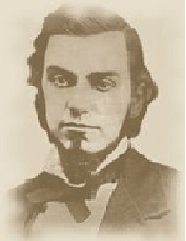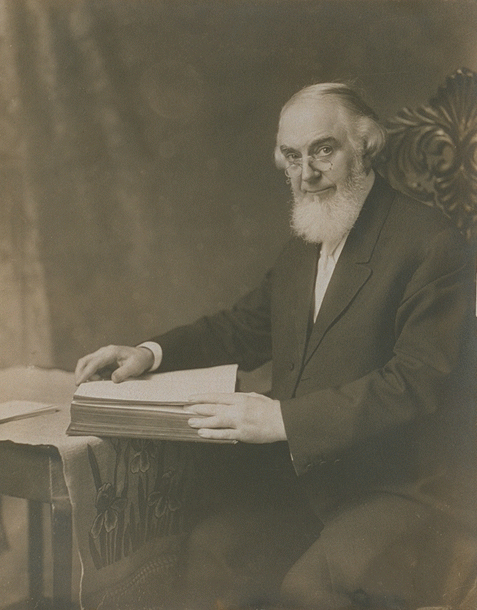His Beginnings
'Jehovah's Witnesses present understanding of Bible truths and their activities can be traced back to the 1870’s and the work of C. T. Russell and his associates, and from there to the Bible and early Christianity.'

Who was Charles Taze Russell?
C. T. Russell was born in Allegheny (now part of Pittsburgh), Pennsylvania, on February 16, 1852, to Joseph L. and Ann Eliza (Birney) Russell, who were Presbyterians of Scottish-Irish descent. Charles’ mother died when he was nine years old, but was still influenced by both of his religious-minded parents. A later associate of Russell said, "they trained the small twig; and it grew in the direction of the Lord." Charles was brought up as a Presbyterian, but he eventually joined the Congregational Church because he 'preferred its views.'Charles was a businessman from an early age. At just 11 years old, he was a buissnes partnership with his father in a growing chain of men’s clothing stores.But even though he was well off in business, he was very troubled spiritually.
He wanted to serve God to the best of his ability and was a sincere student of the bible. Once, when he was twelve years old, his father found him in their store at two o’clock in the morning, 'poring over a Bible concordance, heedless of the hour.'
Charles’ parents raised him to accept the creeds of Christendom’s churches. But he was concerned about the doctrines of eternal punishment and predestination. He reasoned: "A God that would use his power to create human beings whom he foreknew and predestinated should be eternally tormented, could be neither wise, just, nor loving. His standard would be lower than that of many men."
He couldn't accept the teachings of the churches, but continued to believe in God’s existence. He was concerned over doctrine, so he examined the many creeds of Christendom. He explained: "Gradually I was led to see that though each of the creeds contained some elements of truth, they were, on the whole, misleading and contradictory of God’s Word." In the churches, "elements of truth" were buried under pagan teachings that had stained Christianity over the years. He even studied Oriental religions such as Hinduism, Buddhism, Shinto and Taoism. But he was unsatisfied and disappointed.
He gave up on his search and by the time Russell was seventeen, a later associate says that this is how Russell reasoned: "There is no use in my trying to find out anything reasonable about the future from any of the creeds or even from the Bible, so I’m just going to forget the whole thing and give all my attention to business. If I make some money I can use that to help suffering humanity, even though I cannot do them any good spiritually."
But Russell later tells of an experience that ‘reestablished his wavering faith in the Bible’s divine inspiration.’ He accounted: "Seemingly by accident, one evening I dropped into a dusty, dingy hall, where I had heard religious services were held, to see if the handful who met there had anything more sensible to offer than the creeds of the great churches." Russell sat and listened to Jonas Wendell, a Second Adventist, as he delivered a sermon. "There, for the first time, I heard something of the views of Second Adventists. . . . His Scripture exposition was not entirely clear, " But he had to admit: "it was sufficient, under God, to re-establish my wavering faith in the divine inspiration of the Bible, . . . . What I heard sent me to my Bible to study with more zeal and care than ever before, and I shall ever thank the Lord for that leading; for though Adventism helped me to no single truth, it did help me greatly in the unlearning of errors, and thus prepared me for the Truth."

That meeting renewed Russells determination to search for Biblical truth and sent him to his Bible 'with more eagerness than ever before.' He told several young men of his intention to study the Scriptures. Soon this small group (about six people) began meeting weekly for Bible study. According to a later associate of Russell, the study was conducted in this way: "Someone would raise a question. They would discuss it. They would look up all related scriptures on the point and then, when they were satisfied on the harmony of these texts, they would finally state their conclusion and make a record of it." Russell later said that the period "from 1870 to 1875 was a time of constant growth in grace and knowledge and love of God and his Word."
 Hall & (Dr) S A Smith.jpg)